Karen Clements was diagnosed with coronavirus after returning to Australia from New York. Photograph: Christopher Hopkins/The Guardian
After facing the existential threat of testing positive for Covid-19,
these Australians describe the reactions of their communities
- Sign up for Guardian Australia’s daily coronavirus email
- Download the free Guardian app to get the most important news notifications
- Coronavirus Australia maps and cases: live numbers and statistics
When
they emerged from isolation, one felt like an escapee, another saw
friends turn on their heels and some questioned if they had really
recovered. Though their symptoms varied, all the accounts from these
people who have recovered from coronavirus echo the same sentiment:
recovery came at a price. Weeks after getting better, strangers and
loved ones still scrabble to create distance, afraid of contagion.
At the time of writing, 5,984 Australians had recovered from
the 6,875 confirmed cases. While the emerging consensus is that recovery
induces, at least, short-term immunity, the World Health Organization urges caution, and researchers and health authorities are racing to determine how long this defence lasts.Here, six Australians talk about life after recovery.
Kieran Ryan, 32: ‘I asked my friends if they’d carry my coffin’
Looking for relief, Ryan searched online for people recounting their experience of milder cases but what he found at the time was grim. “It would have felt amazing to turn on the TV and hear from someone I could associate with,” he says. “I understand it’s horrific but it’s important to give hope.”
For Ryan, the toughest time came at night. When supportive friends and family slept, he was plagued by questions that began with “what if”. He relentlessly searched for signs of improvement and was overwhelmed by what he saw online. Recognising the damaging effect it was having on his mental health, he found himself switching off his phone.
Now, three weeks after his recovery, Ryan still zigzags between anxiety and graciousness when he leaves the house.
“I have an irrational fear that someone would refuse to serve me or there would be an embarrassing moment where you’re made to feel unwelcome,” he says, adding that he already feels isolated after recovering alone on his property. “I was almost walking around feeling like, what if someone knows?”
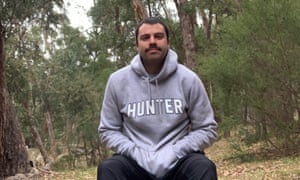
As for what he will take from the experience, Ryan says: “It’s given me clarity on the things that are important to me … I certainly say I love you a lot more.”
Sean Sweetser, 50: ‘It felt biblical, I felt like a leper’
After contracting the virus following a holiday in Manila, Sean Sweetser felt a strange kind of irreverence when he went out into the world. Leaving his bedroom for the first time in weeks, he smiled and waved at a gardening neighbour as he walked by – a gesture he says is out of character. She stared back blankly.At the grocery store the other shoppers were, he says, “in a different world to me – they were nervous, I was on a high”. He felt “untouchable”.
For Sweetser, who lives in a share house with his 18-year-old son and a roommate, isolating in his bedroom was easy enough. He plugged a throwaway kettle into his en suite, had an assortment of disinfectants on hand and kept himself entertained with streaming services. He worked sporadically as an engineer. At the height of his symptoms, he stayed in bed. After some concern about how he and his son would be fed, the problem was solved by Sikh Volunteers Australia who dropped off hot meals. Logistically, most things were there: except empathy.
“There was no compassion for me or the fact I might die, just themselves,” he says of his son and roommate, who entertained conspiracy theories about the virus.
"You're made to feel like you've done something wrong."
Even after an honest conversation about their hostility, little changed, Sweetser recounts. “It felt biblical, I felt like a leper,” he says. “That was the hardest part – being ostracised in your own home.”
Sweetser was cautious and managed to recover without infecting either housemate. But when his son left the air conditioning running for too long – a pet peeve of Sweetser – he jokingly threatened to touch the remote without a glove.
As a regular blood donor in the past, Sweetser has been hoping researchers will ask him to be a part of a trial or make a blood donation.
Instead, the question he does get often is if he will write a science fiction book on a deadly virus, having already published a few e-books in the genre. His answer is firm no: “It’s boring. I like an enemy you can see … I prefer something like robots.”
Karen Clements, 55: ‘My immunity is now my superpower’
On the first leg of her trip home from a holiday in the US, Karen Clements had just flown out of New York when the pilot announced that the city’s airspace had gone into a rare shutdown.By the time she boarded her third flight, Clements was riddled with anxiety. Airports were empty and passengers were scarce. Sharing a plane with cruise patrons, she worried about contracting the virus – unaware she already had it herself.
“The stress was worse than my symptoms,” says Clements, who had discounted her migraines and nausea as side-effects from travelling. “I got home, my legs buckled, and I had a massive anxiety attack.”
After calling for an ambulance, paramedics arrived in protective suits and, though she no longer showed signs of the virus, a cautionary swab returned positive.
With the mild symptoms behind her, Clements grappled with disbelief. Even when her isolation time was up, she remained indoors for an extra two weeks.
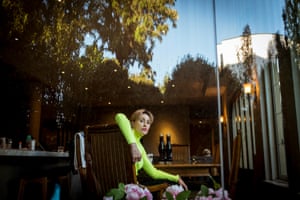
Once her own shock settled, Clements was met with the shock – and fear – of others.
“I was not contagious but [my stepson] said he didn’t even want me in his suburb,” Clements says. “The fact I had it was like I’d still got it.”
Now, five weeks after recovery, the Melbourne local does her grocery shopping without a mask or gloves, citing her likely immunity as her “superpower”.
On one occasion, when a shopper asked her to take a step back, Clements assured her that she was among the safe few, having recovered.
“If she could have shot up into the air, she would have,” she says. “I don’t think I’ll stop telling them though – I like the shock value.”
Camille Valvo, 64: ‘You start acting normal’
When Camille Valvo left her house for the first time after recovering from coronavirus she was feeling like a fugitive. In a matter of days, she lapsed in social distancing, handing a fallen coin to a stranger on the street.“You don’t realise but you start acting normal,” Valvo says. Recognising what she had done, Valvo walked back and apologised, assuring him it was OK because she was likely to be immune.
After catching the virus from her daughter, a flight attendant, Valvo isolated at home with her husband: “He was asymptomatic but he could have had the virus. It’s one of those things you won’t know unless he gets a test.”
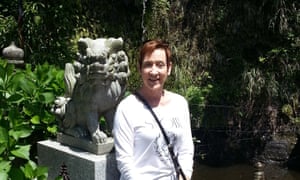
“People aren’t hearing about the mild cases enough,” Valvo says. “Maybe if they did they wouldn’t be in freak-out mode.”
Still an active member of the Facebook group, and now recovered, Valvo is hoping to give this support back to others: “When people post that they are on to ‘day 44’ [of recovering], I think, ‘Wow, I’m lucky.’”
Sydney couple, 38 and 41: ‘A blessing and a curse’
Anna* and David* – and more than 40 others – caught the virus after attending a wedding in early March. The pair were among the first 80 cases in Australia; Anna was the first wedding guest to test positive. Despite the ceremony taking place before the introduction of restrictions, the guests received backlash about their attendance in comment threads under articles covering the outbreak. And the Sydney couple felt judged or feared by friends and acquaintances who avoided interactions. For these reasons they wish to remain anonymous.On her first walk after being cleared Anna wore a mask “just in case” and questioned whether she had really recovered, wanting a negative swab to ease her mind.
When the news made its way around their neighbourhood, the pair saw acquaintances blatantly avoid them on the street. Those who didn’t know took visible steps back when they explained why they had disappeared.
“You’re made to feel like you’ve done something wrong,” says David, who describes it as a blessing and a curse to have had the virus so early.
As small business owner, Anna also felt a pang of guilt when she realised she had infected a contractor who had helped her work overtime.
Despite the flood of exhausting emotions, the couple feel strongly about doing what they can with their likely immunity.
“If they want me on the frontline, I’m happy to be there,” Anna says. They have already taken part in few trials: one assessing at-home test kits, another looking at blood transfusion.
David remains stumped by the response: “The fear of the unknown is understandable but science tell us we are probably the safest people.”
* Names have been changed
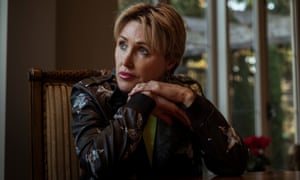
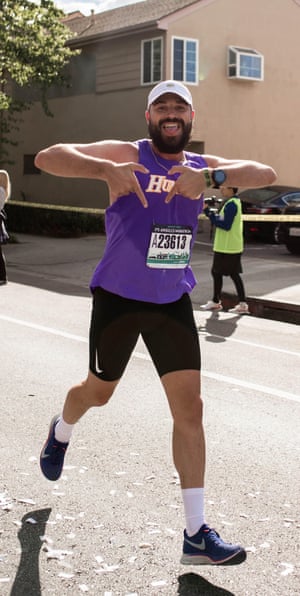
No comments:
Post a Comment